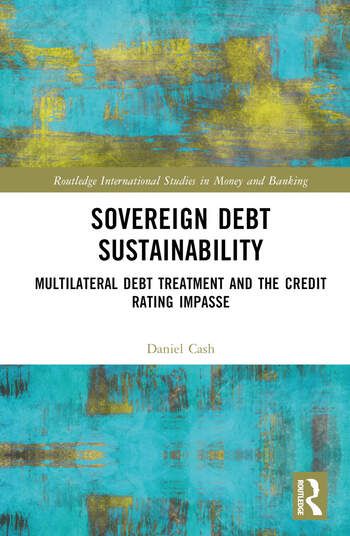
In 2020, the G20 proposed a solution for the debt-related issues affecting the world’s poorest countries due to the Covid-19 pandemic. However, their initiatives have failed to meet their objectives. The author argues that the reason for this failure is an inability to bring sovereign countries to the table to re-negotiate their debt agreements with private creditors, as they fear the credit rating agencies and the prospect of a downgrade. He refers to this as the ‘Credit Ratings impasse’.
This book proposes a novel solution. The author asserts that there is a need in the literature to unpick the dynamic that exists and creates that impasse, namely the pressures that exist between sovereign states, private creditors, credit rating agencies, and the geo-political backdrop that is massively influential in the dynamic, i.e. the adversarial relationship between China and the U.S. The book addresses the recent history of debt treatment for poorer countries and related success and failures; the Covid-19-related issues and the development of the Debt Service Suspension Initiative and the Common Framework for Debt Treatment. The book examines the reasons for their failure by analysing the positions of the sovereign states; the division between Private and Official creditors - and multilateral institutions such as the IMF and the World Bank; the Credit Rating Agencies; and the competing political entities of China and the U.S. It presents a wider picture of the systemic underpinnings to such debt-related issues and, when examined through a geo-political perspective, the subsequent chances of future debt treatment-related successes.